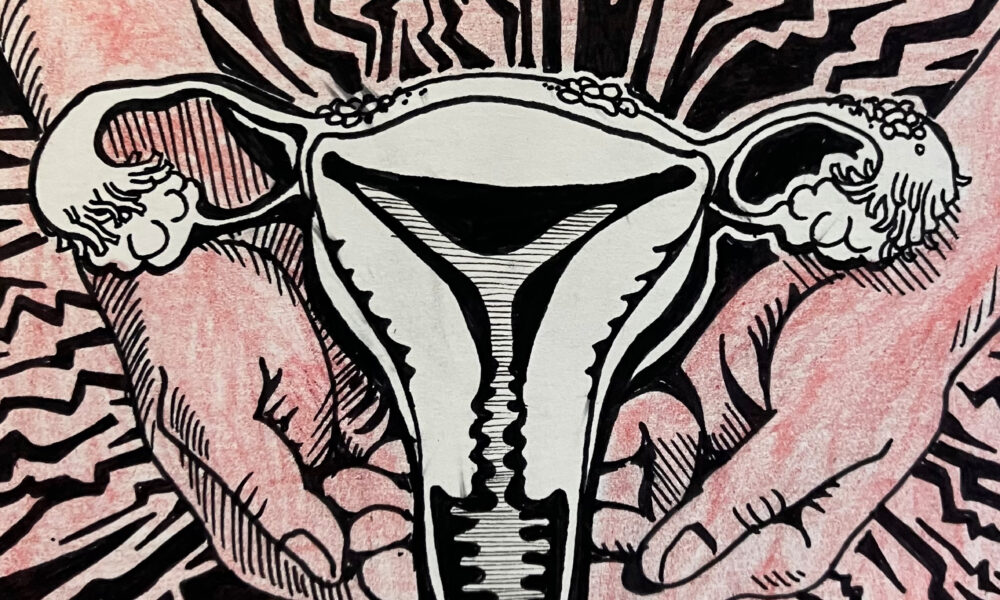Commonly underdiagnosed, endometriosis affects one in 10 people assigned female at birth. Sufferers can experience difficult periods, excessive bleeding, painful sex, and infertility. Regulation of physical symptoms and surgical intervention may help, but a group of McGill researchers want clinicians to advocate for mental health support as an additional part of the treatment plan.
Four of these researchers sat down for an interview with The Tribune to discuss their newly published paper, “Endometriosis, chronic pain, anxiety, and depression: A retrospective study among 12 million women.”
“[Endometriosis] is a condition in which the cells from inside the uterus are located outside the uterus,” Togas Tulandi, chief of the Department of Obstetrics and Gynecology at the McGill University Health Centre, explained.
Drawing on seven years of medical records from over 12.9 million hospitalized women, the researchers revealed a significant association between endometriosis, chronic pain, and anxiety.
This is the first study to use such a large database to research the mental health implications of endometriosis. They used data from the Healthcare Cost and Utilization Project (HCUP) database, which collects information from over a thousand American hospitals.
“We saw an additional effect between endometriosis and chronic pain […] the chance of anxiety increases when we have both of these situations together,” first-author and Université Laval master’s student Hormoz Nassiri Kigloo said. Furthermore, the combination of endometriosis and chronic pain with anxiety increased the patient’s likelihood of experiencing symptoms of depression.
Interestingly, women with a history of anxiety were more likely to experience symptoms of endometriosis than those without.
“[Our research] considers the impact of the mind and the mindset, the psyche, on the presentation [….] Because there’s the clinical presentation, and then there’s how I am functioning with those clinical symptoms,” Tina Montreuil, an associate professor in the Department of Educational and Counselling Psychology at McGill, said. “How we experience our symptoms, from a psychological perspective, can have an impact, not just in how we experienced the biological or physiological condition but also how we may not recover from it.”
“[Getting help] is complicated by the fact that anxiety can be hard for patients to discuss with their doctor. Mental health is considered a stigma,” medical epidemiologist Eva Suarthana said. “So we’re hoping by showing this association, we can advocate more clinicians to really look at the mental health aspect when dealing with patients with endometriosis.”
Aside from expanding the understanding of mental health and disease, this research also demonstrates the need for more comprehensive women’s health research. Historically, women’s health is an underexplored field—only in 1993 did the National Institute of Health formalize a requirement of enrolling and retaining women and minorities in clinical trials to combat the systemic exclusion of both groups.
“Now, there’s people out there that really believe that there is a need to recognize the particularities and the specificities of the woman’s body biologically,” Montreuil said.
In March 2023, McGill University Health Centre opened the Endometriosis Centre for the Advancement of REsearch and Surgery (EndoCARES)—Quebec’s first multidisciplinary referral centre for endometriosis.
“Endometriosis could affect the intestines, it could affect the bladder and other organs in the body,” Tulandi explained. “[EndoCARES] is run by gynecologists, but we have consultant colorectal, neurologist, and imaging experts.”
Moreover, endometriosis is a disease of chronic inflammation, which in turn is linked to many comorbidities. “Chronic inflammation can cause other diseases […] like auto-immune disease or migraines,” Kigloo said. He is currently involved in research investigating the relationship between endometriosis and atherosclerosis, and hopes this research paper will pave the way for similar work.
As March, Endometriosis Awareness Month, approaches, the researchers urge students to learn about endometriosis and its symptoms. Acknowledging the personal stress and academic challenges students face, they emphasize the importance of recognizing the impact of mental health on overall well-being.









